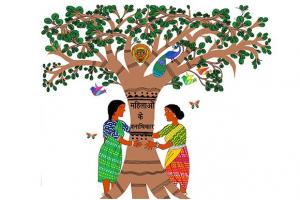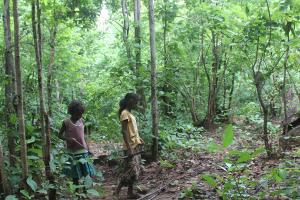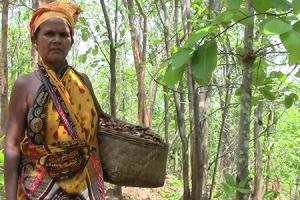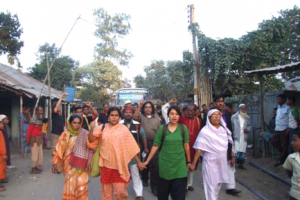Women in Resistance
When forests are destroyed, women in forest-dependent communities are hit hard: Their living conditions are particularly precarious; and providing food, medicine, materials and clean water becomes even harder. The traditional knowledge and wisdom that women pass down from generation to generation are also at risk. That is why women are often on the frontlines of the resistance to forest destruction.
The inter-dependencies in and among communities with their life spaces and practices sheds light to the conservation practices of forest communities. And within these interdependencies lie the stories of women.
A feminist view on Commons reveals that accumulation opposes the basic principles of sharing and sustaining: receiving from nature’s abundance is done by ensuring that needs (and not wants or greed) define the extent of extraction.
Village assemblies in Korchi, along with resistance against mining, are actively engaged in reimagining and reconstructing local governance. Women’s collectives have also started to assert their voice in these emerging decision-making spaces. (Available in Swahili).
India’s programme to compensate for the destruction of forests for development projects is routinely setting up monoculture tree plantations on community commons. Women, who are mostly affected, are at the centre of its resistance.
March 8 is not just a day to celebrate and give visibility to women’s struggles, it is also a day to remember and appreciate the valuable inspiration they provide for every other struggle today. One example is the Chipko women’s movement in India, and the struggle they have led for nearly 40 years to protect forests and resist tree monocultures.








